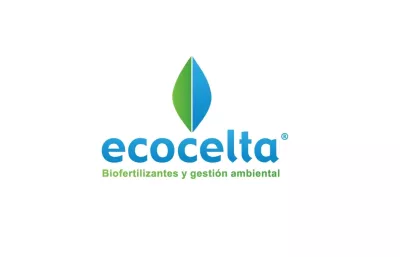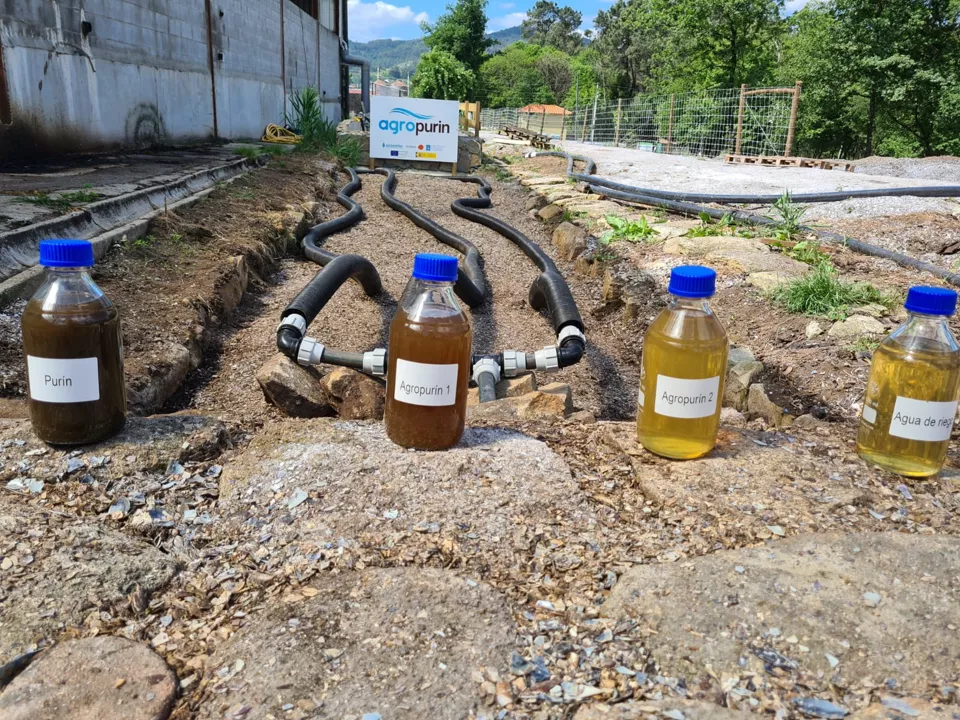General information
RDP Priority
- P1. Knowledge transfer and innovation
RDP Focus Area
- 1A: Innovation & cooperation
RDP Measure
- M16: Cooperation
Beneficiary type
- Small-Micro Enterprise
Summary
The Agropurín project involved building and testing a pilot plant to implement a modular vermigestion system for treating and commercialising pig slurry by transforming it into fertiliser and irrigation water. It represents a sustainable and economic alternative for commercialising pig slurry, with the potential to improve waste management and contribute to livestock sector sustainability.
Outcomes showed that this technique enables a viable solution from both a technical and economic point of view for the management of slurry on pig farms. The main benefits include the technology’s ability to purify more than 90% of the slurry at a lower cost in ways that provide irrigation water and fertiliser.
Results
This project confirmed that:
- Slurry purification savings of EUR 3-8 per m³ are possible with the Agropurín system, which can purify 90% of slurry to significantly reduce methane and ammonia emissions, contributing to a healthier environment for local communities.
- Reusing slurry elements as irrigation water can save thousands of cubic meters of water annually. Commercial reuse of slurry by-products as fertilisers can also reduce farm expenses and promote livestock farm sustainability.
- The project contributes to the advancement of knowledge in biotechnology and waste management, promoting research and the development of new solutions in the agricultural and environmental fields.
- The modular system is scalable according to the specific needs of each livestock farm.

Promoter
Ecocelta Galicia SL
Funding
Total budget: 209 676 (EUR)
EAFRD: 79 433 (EUR)
National/Regional: 26 477 (EUR)
Private/own: 103 766 (EUR)
Keywords
Ressources
Documents
Good practice report : Agropurín - Modular system for vermi-management of slurry for its valorisation as a fertiliser
(PDF – 3.73 Mo)
Context
Target groups of this slurry management project are livestock farmers, rural communities, regulators and agricultural researchers. Slurry, composed primarily of liquid manure and wash water, has a high load of nutrients and organic matter, posing contamination risks if not treated properly.
New solutions to slurry management are needed to properly treat, manage, and reuse slurry that are both environmentally and economically sustainable. This project focused on developing a modular slurry management system that allows efficient and cost-effective slurry purification, while promoting its reuse as fertiliser and irrigation water on livestock farms. The project addressed the slurry management problem and contributes to the environmental and economic sustainability of livestock operations.
Objectives
- Design and implement a sustainable pilot plant for purifying slurry.
- Obtaining by-products with an agronomic value that can be reused on farms to reduce risks of negative environmental impact incidents.
Activities
Design, installation, and start-up of the pilot plant.
- Pilot plant design and preparation of preliminary project for pilot plant.
- Start-up of pumps and electromechanical equipment. Regulation of flow rate and beginning of general start-up.
- Monitoring of input parameters.
- Obtaining and analysing different samples in intermediate and final processes.
- Obtaining samples for conversion into commercial agronomic products.
Agronomic tests.
- Design and implementation of agronomic trials on corn and ryegrass crops.
- Tests used both solid samples obtained from the different phases of the system (Agropurin 2 and 3) and solid samples from the filters.
Analysis of results
- Analysis of the fertiliser value of valued Agropurin by-products.
- Evaluation of the purification efficiency of Agropurin for pig slurry.
- Evaluation of agronomic properties of by-products based on field tests.
Project Dissemination
The Agropurin project findings were disseminated through the following channels:
- Visits to the pilot plant by livestock farmers, potential investors, the Xunta de Galicia, and the agricultural union, 2022-2023.
- Iberian Pasture and Forage Meeting Congress, Huelva Loulé, 04/17/2023.
- Dissemination and special mention at the CFEA Mabegondo Innovation Forum, 02/02/2024.
- Social networks: Facebook, Instagram, and LinkedIn, 2022-2024.
- Digital news : Europapress, La Voz de Galicia, Campo Galego, 2022-2024.
- Partner websites, 2022-2024.
Main results
- The average purification cost with the Agropurín system is EUR 4 per m³, compared to EUR 7-12 per m³ of purification costs with traditional methods, which represents a saving of EUR 3-8 per m³.
- The purification of 90% of slurry significantly reduces methane and ammonia emissions, contributing to the mitigation of climate change.
- The reuse of slurry as irrigation water means the possibility of saving thousands of cubic meters of water annually.
- The use of by-products as fertilisers can reduce expenses on commercial fertilisers, generating additional savings.
- The modular system is scalable according to the specific needs of each livestock farm.
Key lessons
- It allows livestock farmers to purify slurry at a significantly lower cost than at present (EUR 4 per m3 compared to EUR 7-12 per m3), offering considerable savings.
- Agropurin is shown to be a sustainable solution for slurry and facilitates its reuse on livestock farms, either as irrigation water or as fertiliser, promoting the circular economy via sustainable agricultural practices.
- Improved air and water quality contribute to a healthier environment for local communities.
This project responds to one of the greatest concerns that exists today in Galician agriculture.
Contact Information
Email: laboratorio@ecocelta.com
